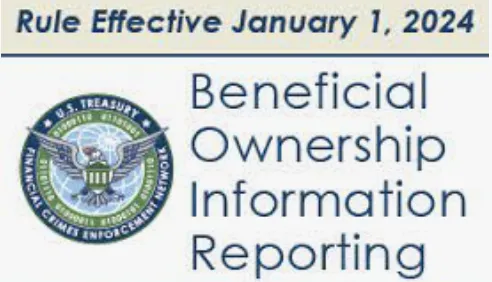One of the most common headaches small business owners face involves their taxes; mercifully, US businesses can apply deductions to reduce tax liability. According to the IRS, in order for an expense to qualify as a business deduction, it must be incurred in the ordinary course of the business and must be necessary.
Key Takeaways To Reduce Tax Liability And Deductions
- To identify the cost of sales, separate direct production costs (materials, labor, overhead) from other expenses.
- Deduct administrative & selling expenses with rent, salaries, office supplies, insurance, marketing, etc.
- Deduct taxes & financial expenses with state/local taxes, property tax, business loan interest, and depreciation.
- Optimize depreciation by using Section 179 or a special allowance for faster deductions.
- Deduct organization costs for up to $5,000 for business formation.
- Remember, non-deductible expenses like fines, non-uniform clothing, and political contributions.
Steps To Reduce Tax Liability With Deductions

Do you feel overwhelmed with the thought of paying taxes? Dont worry! You can reduce your business’s tax liability by strategically utilizing deductions. Here we go!
Make Sure to Identify the Cost of Sales to Reduce Tax Liability
It is important for business owners to identify expenses directly associated with the goods and services they provide. These expenses are called cost of sales or services.
This includes cost of raw materials, labor costs of workers directly involved in the production process and factory overhead such as proportionate share of the production area for rent, utilities and other miscellaneous expenses. Once these expenses are in the cost of sales, the taxpayer cannot use them again as operating expenses.
Administrative and Selling Expenses
The most common deductions that small businesses can use are administrative and selling expenses in order to reduce tax liability. Administrative expenses include the expenses the company pays regardless if they produce or sell. This type of expense includes rent, admin salaries & wages, office supplies, insurance, legal & professional fees and utilities.
Selling expenses, on the other hand, include sales commission, advertising, marketing and promotional materials. Selling expenses help you reach customers and drive revenue. Therefore, proper categorization is important for these deductions and can’t be claimed as a cost of sales.
Taxes and Financial Expenses
While taxes might seem like an unavoidable burden, savvy business owners can leverage several tax deductions to reduce their share. Taxes include state and local income tax, sales tax, property tax, and excise tax. Interest paid for business loans is also tax deductible, but not the business loan itself. Losses from the sale or disposition of business property also form part of your business deduction.
Therefore, proper record-keeping is important for claiming these deductions. Make sure you retain receipts, invoices, and other supporting documentation. By strategically utilizing these deductions, you can significantly reduce your tax liability and improve your business’s bottom line.
Depreciation
Depreciation is another income tax deduction which allows taxpayers to recover the cost or other basis of certain property. It is an annual allowance for the wear and tear, deterioration or obsolescence of the property. In the US, taxpayers can elect qualifying properties under Section 179. This section allows them to deduct the full depreciation for the year the equipment begins its service. The limit for 2018 has a cap of $1,000,000. In addition to Section 179, taxpayers have a separate option to claim special depreciation allowance. By using this special allowance, taxpayers can deduct 50% of the costs of qualifying properties as a depreciation expense in the year they are placed in service.
Organization Costs
Starting a business comes with exciting challenges but also initial expenses. Thankfully, the IRS acknowledges these hurdles by allowing you to deduct a portion of your “organization costs,” which are those incurred during the formation of your company. Up to $5,000 of these costs, like legal fees for incorporation or permits, can be directly deducted from your taxable income, easing your financial burden.
However, if your organization’s costs exceed $5,000, don’t despair! The remaining amount isn’t lost forever. These costs are “capitalized,” meaning they become part of your business’s basis. While you can’t deduct them all at once, you can “amortize” them over a period of 180 months (15 years), gradually recovering their value through annual deductions.
Prohibited Deductions
Though most business expenses are tax deductible, there are few the law prohibits. These include penalties and fines, federal income tax payments, clothes which are non-uniforms and political contributions.
While strategizing tax deductions can be a savvy way to optimize your business finances, remember there are certain expenses at the IRS that have limitations. Stay clear of deducting penalties and fines, even if they stem from business operations.
Unfortunately, directly reducing your tax liability by deducting federal income tax payments isn’t an option either. For example, don’t get too attached to that stylish new suit for client meetings, as non-uniform clothing generally doesn’t qualify for deductions. Finally, remember to keep your personal and professional lives separate in the tax arena, as political contributions are another prohibited deduction. By understanding these limitations and focusing on eligible deductions, you can navigate tax season with confidence and maximize your savings legally. For complex situations, consulting a tax professional can offer valuable guidance and ensure you stay on the right side of the law.
Can Cleer Tax Help Me Reduce Tax Liability?
Absolutely! At Cleer Tax, our dedicated team is committed to addressing the distinct requirements of your business.
We provide comprehensive tax advisory services tailored to your specific needs, covering every aspect of compliance and optimization – including helping you reduce tax liability wherever possible. Our goal is to ensure that you capitalize on every available opportunity, leaving no stone unturned when maximizing your tax benefits and minimizing any potential liabilities.
Cleer provides Corporate Income Tax Packages encompassing federal and state income tax filings for a hassle-free experience. We also offer all-inclusive bookkeeping packages, which include your monthly statements plus your federal and state tax returns.
If you need any help reducing your tax liability, schedule a consultation, or feel free to contact us.






